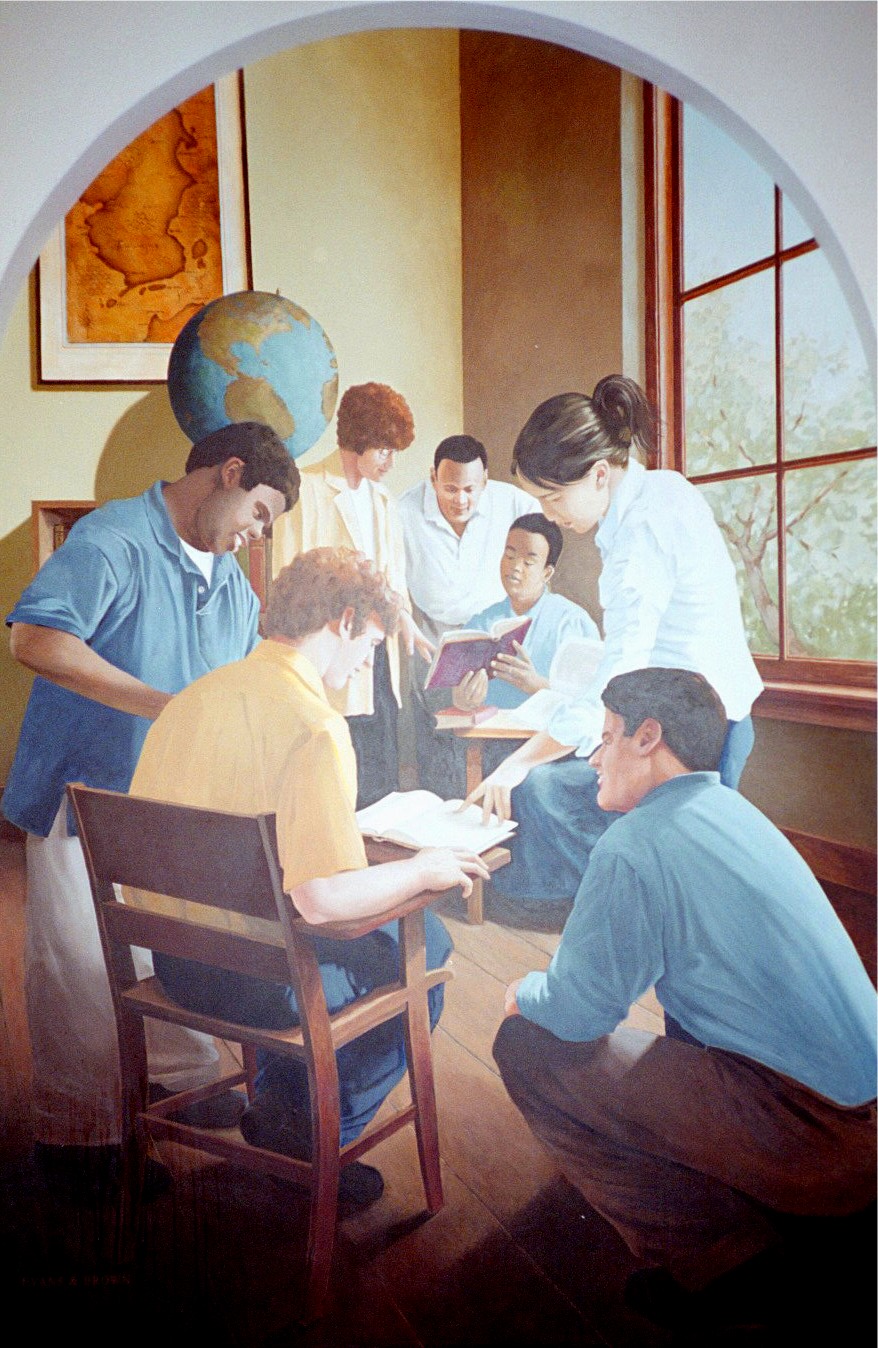 SEMINAR I SEMINAR I
Book Discussion Groups: Fiction and Nonfiction
Aims: The first semester aims to develop an understanding of the
purpose and methods of book discussion groups. Emphasis will be put on
extensive reading, journal writing, and discussion.
Activities: Weekly readings, discussions, and book report
presentations.
Contents: Narratives, informational texts, short stories, and
novels.
Evaluation: Participation, homework, and book report presentations.
Textbooks: Students choose their own fiction or nonfiction
books from the library or bookstore, such as
paperbacks and upper-level
Penguin and
Oxford readers.
Selected resources
1. Literature
Circle Models (Candlerfs Teacher Resources)
2.
Literature Circles Build Excitement for Books (Education World)
3. Literature
Circles (Teacher Feature: Jan Zeiger)
4.
Rosenblatt's Reader Response Theory (by P. Mora & J. Welch)
¹
5. Booknotes
CSPAN (Interviews with authors)
¹
New!
6. Book
TV CSPAN (Interviews with authors)
¹
New!
7.
American Writers I American Writers II
New!
 SEMINAR
II SEMINAR
II
Researching and
Discussing
Global Issues,
Current Events, and
Cultural Topics
Aims: The second semester aims to build background knowledge and increase
vocabulary related to global issues, current
events, and cultural topics.
Activities: Readings, discussions, language practice, videos, and about
six short research reports (one every two weeks).
Contents: For
the reports, students choose their own topics, such as environmental
problems, gender equality, globalization, health, human rights, or
population.
Evaluation: Participation, homework, presentations, and written reports.
Textbook:
Students
choose their own
books or
articles from
magazines, newspapers, and Internet Web sites.
Selected references
1.
Global
Issues
2. Facing the Future: People and the Planet
3. Japan International
Cooperation Agency (JICA)
4.
Fair Trade Action Guide for Schools (SCIAF) (PDF)
New!
5. Global Issues A-Z from
One World Radio
New!
6. BBC Talking Point
7. National Public Radio
8.
Service Learning (PPT) New!
9.
Other news links
@
¢How can this seminar be useful for the future?
These seminars are suitable for
students who want to increase their English
language ability while furthering their self-development by reading,
discussing, and writing about works of fiction and nonfiction. Students
interested in transferring to a four-year university, studying abroad, or
aiming to improve their TOEIC score will find this
course helpful, too.
 Frequently Frequently
Asked
Questions
1. How can I sign up for your seminar? Starting on
July 11,
2007, qualified students will be accepted as gfirst come, first
servedh (sen-chaku-jun). To qualify, you should be able to raise your English ability up to a TOEIC score of
about 450 or more by
April 1, 2008 and be an gAh or gBh student in
your English courses. If your ability is lower than that, you may have a difficult time
in this course. You can improve your TOEIC score by using Sophia's online
e-learning program
ALC Net Academy 2
(from home or on campus) and
TOEIC Training software (on
campus only).
If you think that you qualify to join this seminar, send an e-mail to
m-andrad [at] jrc.sophia.ac.jp with
the subject (hyoudai, kenmei) gSeminar 2008h
and the
following information:
(1) Student ID number (Example: 07-000)
(2) Full name (Example: Haruko TANAKA)
(3) E-mail address you usually use
(4) Your Sophia e-mail address (Example:
00-000ab@jrc.sophia.ac.jp)
(5) Your most recent TOEIC score including
date taken (Example: 440, April 2007)
(6) An explanation of why you want to take this
seminar
(7) Your career plan (Job? What kind? Hennyu?
Which university? Which gakubu?)
(8) Did you attend the setsumei-kai for this
seminar on June 20?
(9) Is this seminar your first, second, or third
choice? (dai-ichi kibou? etc.)
þ
When I receive your e-mail, I will reply within a day or two. If you do
not receive
a
reply, please come to see me during
my office hours (click)
or leave me a note
with
the information above (items 1-9).
þ
An interview is not required, but I will be available during my regular
office hours
(click)
if you have any questions. However, you need to come to my office to pick
up your "Permission
to Enroll Form" (kyoka-sho). An appointment is not
necessary.
2. What about job hunting and career planning
advice? "Seminar Teacher" and "Advisor" are separate roles.
Advising activities (job hunting, transfer advice, etc.) will be done
one-to-one outside of class time. In addition, if you are having trouble
deciding on a career path that suits your personality and goals, the
SJC Counseling Office can help you find your way and also provide
advice on personal problems. Furthermore, SJC has many
career planning
activities and resources available to you.
3. Do you have a home page? Yes, my home page
is located at
http://www.ne.jp/asahi/m/and
|
 Seminar
2008
Seminar
2008  SEMINAR
II
SEMINAR
II  Frequently
Frequently